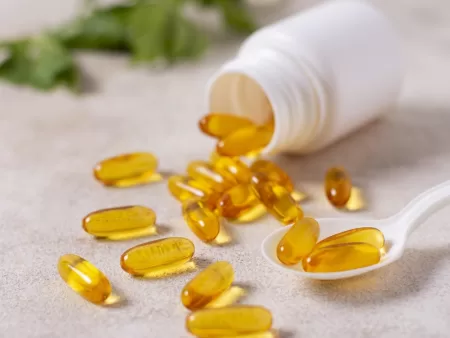
Do you like to eat broccoli? What effect does it actually have on your body, in general on testosterone, is it really useful?
Overview of Testosterone
Testosterone is a hormone, a kind of chemical messenger, that’s really important in our bodies. It’s often called the ‘male hormone’, but it’s vital for both men and women. In men, it’s made mostly in the testicles, and in women, it’s produced in the ovaries, though in smaller amounts. It’s also made by the adrenal glands in both genders. Testosterone is known for its role in male puberty, helping to build up muscles, deepen the voice, and grow facial hair. But it does much more than that.
Factors That Influence Testosterone Levels
A number of things can affect how much testosterone your body makes. Understanding these can help you keep your levels healthy. Here’s a look at some of these factors:
- Age: As we get older, especially once we hit 30, it’s normal for testosterone levels to start dropping. This change can affect muscle strength, bone health, and sex drive.
- Lifestyle: What you do every day can raise or lower your testosterone. Smoking, drinking too much alcohol, and not exercising can decrease testosterone levels. On the other hand, physical activities, particularly those that build muscle, like weightlifting, can boost it.
- Diet: The food you eat matters a lot. Eating a balanced diet helps maintain good testosterone levels, while too much processed food or not getting enough nutrients can lower them.
- Stress: Being under a lot of stress for a long time can increase the hormone cortisol, which can reduce testosterone production. Managing stress through activities like meditation, exercise, or even just getting enough sleep, can help keep your hormones balanced.
- Health Conditions: Certain medical conditions, like hypogonadism, obesity, diabetes, and hormonal imbalances, can lower testosterone levels. It’s important to get these conditions checked and treated by a healthcare professional.
Keeping an eye on these factors can help you take care of your testosterone levels. Small changes in lifestyle, like eating healthier, staying active, and managing stress, can make a big difference in maintaining a healthy hormone balance.
Secrets of Broccoli
It’s a champion in vitamin C content, often outshining fruits known for this vitamin, which is great for keeping your immune system up and your skin healthy. There’s also a good amount of vitamin K in broccoli, which is crucial for bone health and helping your body heal wounds. Folate is another star in broccoli, especially important for cell growth and vital for pregnant women.
Broccoli isn’t just about vitamins; it’s also rich in essential minerals. It’s a great source of potassium, which is important for keeping your heart beating right. Iron and magnesium are also present, which are key for giving your body energy and keeping your muscles working well. The fiber content in broccoli is a big plus, too, as it helps with digestion and can assist in managing your weight.
Broccoli’s Role in Hormone Health
Broccoli contains several unique elements that are beneficial for hormone balance:
- Sulforaphane: This nutrient, found generously in broccoli, supports the body’s natural detox processes and is thought to contribute to maintaining a healthy level of estrogen, essential for both men and women.
- Indole-3-Carbinol (I3C): Generated when broccoli is chewed and digested, I3C is considered helpful in regulating estrogen levels, important for overall well-being.
- Fiber: Fiber is crucial for a healthy digestive system, which in turn is essential for maintaining balanced hormone levels, including those of estrogen and testosterone.
- Diindolylmethane (DIM): A compound that forms from I3C, DIM is believed to assist in promoting a more balanced estrogen level in the body.
Incorporating broccoli into your diet is a smart choice for enhancing your health, not just for its nutrient content but also for its positive impact on hormonal balance. Its adaptability in various recipes makes it an excellent addition to any meal, ensuring you can easily benefit from its myriad of health advantages.
Methods for its preparation
Choosing Steaming Over Boiling
Opt for Steaming: This gentle cooking method is excellent for keeping in the vitamins and minerals. It’s especially good for retaining antioxidants and important compounds like sulforaphane, ensuring the veggie’s health-boosting properties are preserved.
Limited Boiling: Boiling tends to leach out water-soluble nutrients. To minimize this, boil for a short time and consider using the nutrient-rich water in other dishes, like soups or broths.
Sautéing and Stir-Frying Tips
Cooking quickly in a small amount of healthy oil can maintain most of the veggie’s nutrients. This method also helps in the absorption of fat-soluble vitamins contained in it.
The Art of Roasting
Roasting at the right temperature for an appropriate duration can keep the nutrients intact while bringing out a delicious flavor and adding a desirable crunch.
Microwave Cooking
Using a microwave is a fast and effective way to cook while preserving most nutrients. Simply steam it in the microwave with a splash of water to maintain its nutritional profile.
Raw and Crunchy
Consuming it raw is one of the best ways to enjoy all its nutritional benefits. It retains all its enzymes and nutrients in this form, making it an excellent choice for salads or as a healthy snack with your favorite dips.
By selecting the right cooking technique, you can make the most of this nutritious vegetable. Each method, from steaming to eating it raw, offers unique benefits and contributes to a healthy, balanced diet.
Broccoli’s Role in Supporting Hormones
Broccoli: Not Just Your Average Green Veggie
Broccoli might look like an ordinary green vegetable, but it has some special powers when it comes to our body’s hormones, such as testosterone. While it doesn’t directly make testosterone levels go up, it works in a gentle way to help keep hormones balanced.
Broccoli’s Secret Ingredient: Indole-3-Carbinol (I3C)
In broccoli, there’s something called indole-3-carbinol, or I3C. This doesn’t mean an instant boost in testosterone. What happens is I3C gets into our body and starts doing its magic. It’s more focused on handling estrogen, another important hormone. Keeping estrogen in balance is good for testosterone too, as it helps everything stay in harmony.
Sulforaphane
Another neat thing in broccoli is sulforaphane. This isn’t about pushing up testosterone directly. Instead, sulforaphane is known for helping our bodies detoxify. It helps manage how our body deals with hormones, which is really important for keeping things like testosterone in check.
The Power of Fiber in Broccoli
Broccoli is also full of fiber. Eating lots of fiber is good for our stomachs, and a happy stomach is important for our hormones, including testosterone, to work right. So, the fiber in broccoli helps in a roundabout but important way with our hormonal health.
Broccoli, A Veggie That Supports Hormones
Even though broccoli doesn’t give a direct boost to testosterone, it’s got things like I3C, sulforaphane, and fiber that are great for our hormone health. Adding broccoli to our meals can be a delicious way to help our hormones, including testosterone, stay balanced.
Myths about broccoli and testosterone
Myth 1: This Vegetable Significantly Increases Testosterone
Contrary to popular belief, while this green vegetable is nutritious and supports hormonal balance, it is not a direct booster of testosterone levels. Its nutrients, such as indole-3-carbinol, assist in maintaining a balanced hormonal state, including testosterone levels, but it’s not a quick-fix solution.
Myth 2: Immediate Hormonal Effects Post-Consumption
Hormonal changes from diet, including eating this vegetable, are gradual and not instant. Consistent inclusion in your diet contributes to long-term hormonal health, but it does not provide immediate hormonal changes.
Myth 3: Only Beneficial for Men’s Hormonal Health
The benefits of this vegetable are not exclusive to men. Women also require testosterone for health and wellness, and this veggie’s nutritional makeup is beneficial for both genders in supporting hormonal balance.
Myth 4: A Substitute for Hormonal Medications
It’s critical to understand that while this green vegetable supports hormonal health, it cannot replace prescribed hormonal medications. Dietary changes can complement medical treatment, but they are not a substitute for professional medical advice and treatment.
Overall, while this nutritious green vegetable supports hormonal balance, it should be part of a varied and balanced diet, combined with a healthy lifestyle, for effective results.
Conclusion
Testosterone’s significance extends to both genders, with levels affected by various lifestyle and health factors. A specific green vegetable offers a wealth of vitamins and minerals, supporting not just hormonal health but also cardiovascular and muscular well-being. It includes compounds like I3C and sulforaphane, which aid in maintaining hormonal equilibrium, though they don’t directly increase testosterone. Preserving its nutritional value is best achieved through cooking methods like steaming and quick stir-frying. Incorporating this vegetable is beneficial but should be part of a broader, balanced nutritional approach for hormonal health.
FAQs
No, it doesn’t boost testosterone directly but supports hormonal balance with nutrients like I3C and sulforaphane.
Everyone can benefit. It’s packed with nutrients good for overall health, including heart and muscle health, for both men and women.
Steaming or stir-frying quickly are great ways to cook it without losing a lot of nutrients.
It’s a great choice but should be part of a diet that includes a variety of foods. This ensures you get different nutrients your body needs.
It has special nutrients that help keep hormones in check, making it a good choice for a healthy diet.






